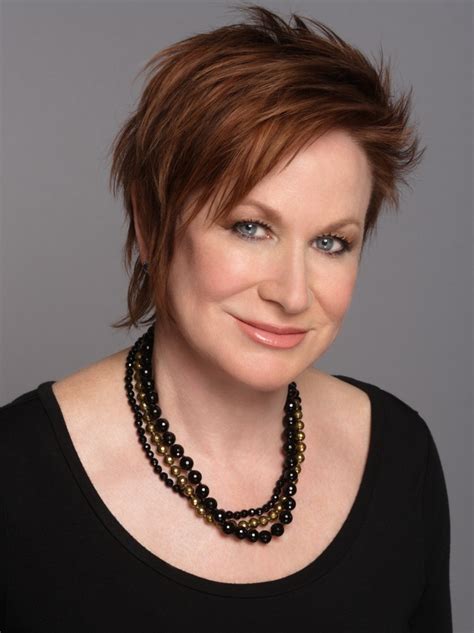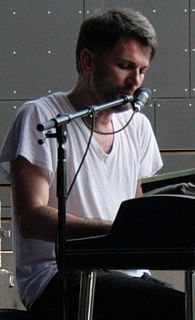A Quote by Gerard Butler
One thing I've learned as an actor as well as a producer is to trust my own instinct. When I first started acting I would sometimes have ideas about certain things, whether it's a scene, or a character or certain dialogue, that wouldn't be followed. I was never in a position to have the power to press the matter. Sometimes it wasn't even about my character. But I'd watch the movie afterwards and think I was right.
Related Quotes
When you go for something because you're curious about it, you get psyched up about the chance of getting into it. It's like an actor meets a role, and you slip into that body and see what happens, to experience certain conditions, to adopt a certain character. Even shooting is a study of the character. I think both the character and the actor, and eventually the filmmaker - myself - are finding a way to accept their environment and being accepted and feel comfortable of themselves.
Of course, you can never watch something like somebody else watches something like you, but nonetheless, you have to try. So I think on camera you learn a lot about how much the camera does for you, which is what is the great luxury of movie acting. Or acting whether it's TV or movies or whatever it is, that the camera's really such a gift because there's so much that it sees and does if you're willing to just be open and expose yourself and all of that. So you also learn what doesn't matter. And sometimes when you think about things, you think things matter that don't matter.
TV is longer form, and that's sometimes a positive, and sometimes a more challenging thing. As an actor, you want to be able to have your character develop or transform in some way. When you're acting on a show over the course of multiple seasons, you get to watch a character really grow and change, and go from one place to an entirely other place.
The first thing that happens is the cleansing of the former character. I don't think a lot of actors talk about it, but there is usually a process where you essentially purge yourself of the character played prior to the movie. Then you want to think about what the character represents, and you write down all of the elements about this character and then take the time to find some synchronicity and start breathing the character.
I just write and do what I think is funny. Sometimes, you do have it in your head about certain bits. There are certain jokes where I know if I did them in certain situations, it would irk people. There are times where I look at the news and see a story going on, and I'm like, 'Wow, if I tweeted this, I would get press if I wanted to.'
You have a certain objectivity, as a member of the audience, and you can come away maybe being provoked into a certain discourse or a certain arena of questioning, regarding how you would deal with things that your character has to deal with. Whereas when you're doing a film, once you start asking, "What would I do?," you're getting the distance greater between yourself and the character, or you're bringing the character to you, which I think is self-serving, in the wrong way. The idea is to bring yourself to the character.
When you're studying drama, when you're a young actor, there are simple rules about acting. "Why am I here? What prevents me from leaving? What am I trying to get? How do I hide something?" So when you're making a film like Abel's movie, you want to be thinking about those things all the time. And you wanna be armed with those things, and you hope the other actors you're working with have the same understanding of drama and scene and acting. Sometimes it works and sometimes it doesn't.
Sometimes I just trust certain intuitions on certain things. As we age, I start to follow it without being scared. So whatever it was - moving to New York, getting married with Grace - I always had that first impression about something. I'm not saying be superficial. I'm not about that. It's more of a thing you have from the stomach. It's a magnet, you are attracted to it. When I was younger, I would question it. I wouldn't follow it. But as I get older, I am just going for it, without fear.
I'm not a big fan of violent movies, it's not something I like to watch. And it's not my aim or goal to make a violent movie. My characters are very important, so when I'm trying to depict a certain character in my movie, if my character is violent, it will be expressed that way in the film. You cannot really deny what a character is about. To repeat, my movie end up becoming violent, but I don't start with the intent of making violent movies.



































